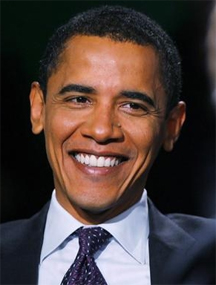WASHINGTON (Reuters) – New state laws designed to fight voter fraud could reduce the number of Americans signing up to vote in this year’s presidential election by hundreds of thousands, a potential problem for President Barack Obama’s re-election bid.

Voting laws passed by Republican-led legislatures in a dozen states during the past year have sharply restricted voter-registration drives that typically target young, low-income, African-American and Hispanic voters – groups that have backed the Democratic president by wide margins.
A further 16 states are considering bills that would end voter registration on election days, impose a range of limits on groups that register voters and make it more difficult for people to sign up, according to the Brennan Center for Justice at New York University Law School.
The new laws – many of which include measures requiring voters to show a photo ID at the polls – could carve into Obama’s potential support in Florida, Ohio and a few other politically divided states likely to be crucial in the Nov 6 election, analysts say.
The analysts note that massive registration drives in 2008 helped put millions of people aged 18 to 29 on voting rolls, and that age group – which makes up roughly one-quarter of the US electorate – helped propel Obama to victory, voting 2-to-1 for him.
Rock the Vote, a nationwide organization that mobilizes young voters, said the new laws would make it more difficult for the group to educate people on how to sign up to vote.
“The types of laws have varied, but state by state they’ve added up to the fact that it’s going to be harder for young people to get registered and vote in this election cycle,” said Heather Smith, president of Rock the Vote.
“We have a very busy year ahead of us, and a very important one,” she added. “What a shame if we can’t continue to engage this generation in the political process because these laws have made it harder.”
Rock the Vote, which registered a record 2.25 million young voters in 2008, has set a considerably lower target this year: 1.5 million. The group says the drop is because of the new laws as well as the fact that unlike 2008, this election year has had a competitive primary contest only among Republicans.
The League of Women Voters also could sign up fewer voters this year, partly because it has joined Rock the Vote in suspending voter registration drives in Florida as the groups challenge that state’s new restrictions in court.
Another factor expected to drive down voter registration totals this year: the absence of the Association of Community Organizations for Reform Now, or ACORN, which registered more than 1 million mostly low-income voters in 2008.
Thousands of those registrations were for people who did not exist, submitted by ACORN-hired workers who were paid based on how many names they registered to vote.
The scandal helped lead to the demise of ACORN and inspire some of the anti-fraud laws affecting registration drives this year.
The episode involving ACORN, which folded in 2010 after it lost federal funding, showed a need for the new anti-fraud laws, said Brian Darling, a senior fellow for government studies at the conservative Heritage Foundation.
Like other conservatives, Darling rejected the notion that Republican-led legislatures had passed the laws to try to prevent certain groups from voting.
“There have been problems of voters being registered who weren’t real voters,” Darling said. “Just look at the ACORN scandal.”
The new laws have led to a flurry of lawsuits across the country.
The new anti-fraud election laws vary from state to state, but Florida’s has received much attention largely because the state will be crucial in determining the winner of the Nov 6 presidential election.
